People
7 Quotes From Takashi Murakami on His 54th Birthday
Explore the bizarre universe of the Japanese superstar in his own words.
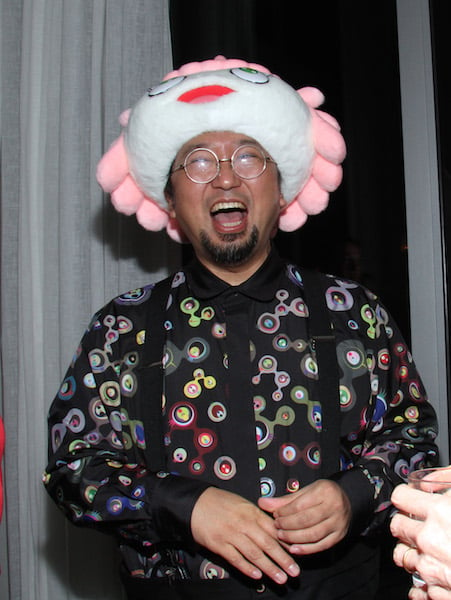
Photo: Mireya Acierto / Getty Images
Explore the bizarre universe of the Japanese superstar in his own words.

Amah-Rose Abrams

Takashi Murakami has been called the Japanese Andy Warhol more times than it’s possible to count. His practice is influenced by a range of diverse yet precise sources: the online world of otaku, cosplay, Japanese manga and anime, the history of Japanese perspective, and graphic novels.
Murakami combined all these influences to create his “superflat” theory, which refers to a the flattening of perspective throughout Japanese art, and also created a stable of characters that reappear throughout his work, including the character Dr. DOB.
Due to the high demand for his high-colour, high-energy, sex-drenched, accessible yet highly dark work, Murakami also began to commercialise his art—from manufacturing and selling smaller mass-produced artworks and objects, to collaborations with Louis Vuitton and Marc Jacobs, Issey Miyake, and Kanye West.
He has also created the film trilogy Jellyfish Eyes (2014) with Pharrell Williams, which he has referred to as a “dark comedy about death”. With his dark cartoon motifs, his penchant for the highly sexualized and the explicit, and his love of all things URL, Murakami has something of a strange reputation. To celebrate his 54th birthday, we have put together some quotes from the eccentric artist.
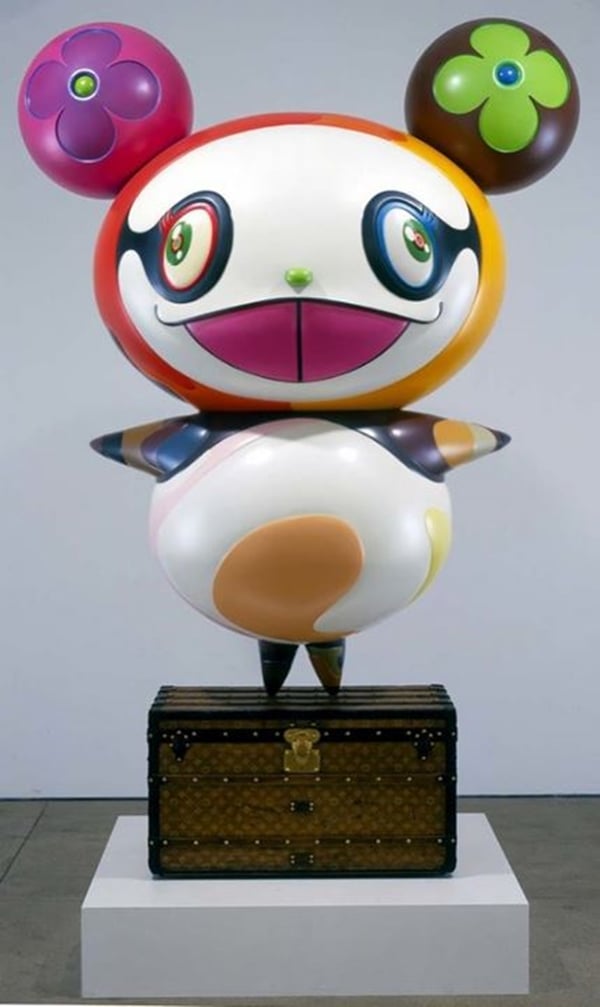
Takashi Murakami, Panda (2003).
Photo courtesy of Galerie Perrotin.
On how he acquired his dog, Pom:
“I was looking for a good place to go where nothing was happening, and I saw a photo in a magazine of a small, dirty hotel, and, in the photo of the hotel, there was this very dirty dog. The hotel was in the very southern part of Japan, a place called Yoronjima. It was a popular vacation place in Japan in the 1970s, but now it’s very, very quiet, almost like a ghost town. But the hotel there is still alive. The owner is, like, a crazy local guy. Everything there looks really unnatural. This hotel has two dogs. One dog was the one I saw in the picture—it’s a very small dog. But the second one was grown and was pregnant! So I asked the owner when this pregnant dog would give birth, and he kept saying, ‘Tomorrow, tomorrow . . .’ I was waiting for the puppies, so I wound up staying at this hotel for four days.”
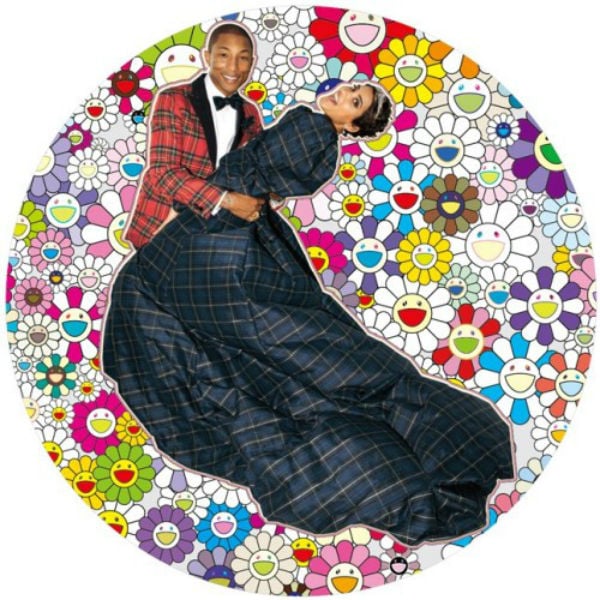
Takashi Murakami, Portrait of Pharrell and Helen – Dance (2014).
Photo: Terry Richardson ©2014 Takashi Murakami/Kaikai Kiki Co., Ltd. All Rights Reserved.
On why Japanese people are healthier than Westerners:
“Western people need drugs to release dopamine. But we [Japanese] just play video games and don’t use drugs. So we’re healthier.”
On URL over IRL:
“I love the fantasy world. Going through the iPhone is much more real because we can record it. That makes it much better than real life.”
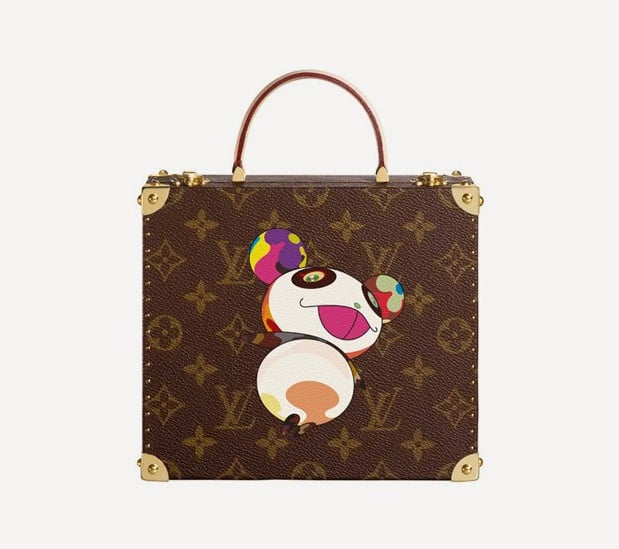
A bag from Takashi Murakami’s Character Bag collection for Louis Vuitton.
Photo: Courtesy Louis Vuitton.
On his love for American hamburger chain In-N-Out:
“[I always order a] Cheeseburger and fries. The problem whenever I come to America is that the hamburgers are so delicious, I end up eating one every two days and fattening myself into a round ball.”
On the capitalist nature of his artistic generation:
“The theme my generation explored was the relationship between capitalism and art. In that sense I couldn’t use that many narrative motifs. So Jeff Koons, Damien Hirst, and myself, we were trying to link art, which fundamentally has no value, with capitalism and to show how it can be seen as valuable.”
On his inspiration from the strange reality of otaku, anime, and manga obsessives:
“The primary reason that I want to represent otaku culture comes from the public ignorance of otaku; most people dislike otaku because they have no access to information on otaku. I am one of the losers who failed to become an otaku king. Only a person who has a superb memory in order to win at a debate can become a king of otaku. Since I didn’t have that ability, I became an artist. There is a difference between an artist whose creativity stems from otaku-like ideas and a genuine otaku who can win at a debate to be the king. Most people do not recognize the difference.”
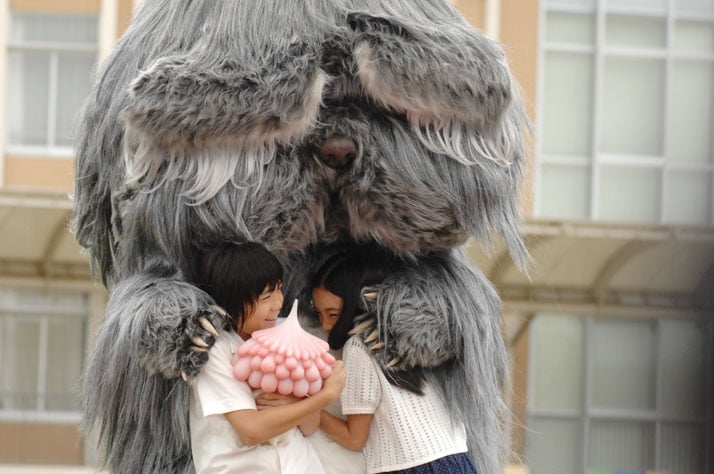
Takashi Murakami, Jellyfish Eyes (2013).
Photo: © 2013 Takashi Murakami/Kaikai Kiki Co., Ltd. All Rights Reserved Courtesy the artist and Blum & Poe, Los Angeles.
On his feature film series Jellyfish Eyes:
“So this is an homage for the Japanese animation movie Galaxy Express 999. In the first sequence, there’s something exactly like that, a very stupid message. But when I was 17 years old, it looked really mysterious. My target for this movie is kids. Kids don’t understand what the sentence means, but it’s just the set-up for something really strange happening.”